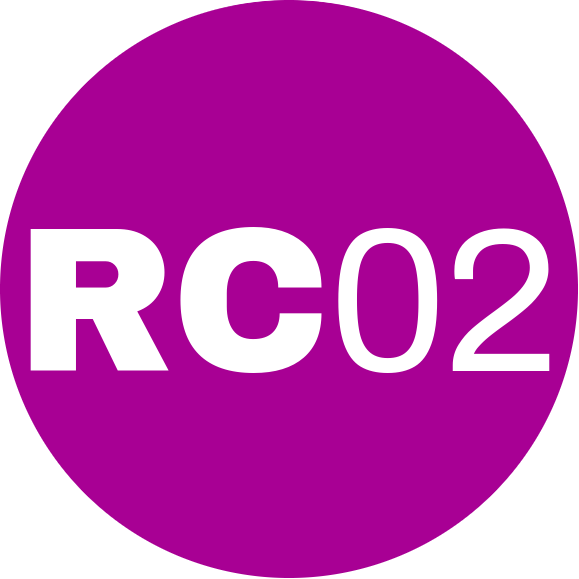Andrea Komlosy presented a foresight study on the Covid-19 pandemics as a game changer (Hofbauer-Komlosy 2020) in June 2020 employing the model of dominant production principles (Grinin 2012:46-82).
Can investigations on the impact of 14th century Black Death pandemics on Europe (Frankopan 2015:184-203, Wickham 2016) including the Chinese Zhèng Hé – expeditions (1405-33) and Western renaissance scientists’ efforts to replace the abandoned Silk Road by the so-called “Maritime Silk Road” improve such foresight studies?
The “flagship person” of my now stalled project (Plachetka 2020) on World System information networks (Plachetka 2018) is the Austrian Renaissance astronomer Georg Purbachius (Georg Aunpeckh von Peuerbach, 1423 –1461) for his discovery of the magnetic deviation of the nautical compass (Samhaber 2000:138-9), then 10° towards Northeast (Zinner 1968:31, 1990). Purbachius’ generation of Renaissance scientists were promoted by rulers due to then emerging state-administration: The Black Death fostered cash money economy, reducing feudal elite’s rent-funded agency. Settling ecclesiastical schisms by diplomacy was another 15th century novelty as were charted “World”-Maps (Bennett-Durand 1952): Toscanelli’s 1474 plan to sail westward to China (Altolaguirre y Duvale 1908), may have emerged at the ecclesiastical council of Ferrara-Florence (1438-45) furnishing Fra Mauro with information for his landmark “World” Map (O’Doherty 2011) drawn ca. 1457, the year Purbachius discovered the compass deviation: Astronomic instruments for deep sea navigation became imperative, triggering the supremacy of knowledge by instruments over socially embedded knowledge.
According to Komlosy’s foresight rationale, opposition to a now emerging computer “cyberarchy” parallels the 15 and 16th century feudal elite’s opposition to then emerging administrative elites and their hegemonic discourse e.g. in lawsuits: Economic system change is the pivot of both cases, but, as Fraser (2017) knows, highlighting conflicts over cultural hegemony is a controversial issue per se.
Dr. Uwe Christian Plachetka is based at the University of Natural Resources and Life Sciences (Universität für Bodenkultur), Austria
References
Altolaguirre y Duvale, Angel (1908) Cristobal Colón y Pablo del Pozzo Toscanelli. Estudio crítico, Madrid
Bennett Durand, Dana (1952) - The Vienna-Klosterneuburg Map Corpus of the fifteenth century. A study in the transition from medieval to modern science. Leiden: Brill
Fraser, Nancy. (2017) “Progressive Neoliberalism versus Reactionary Populism: A Choice that Feminists Should Refuse” NORA 24 (4):281-4
Grinin, Leonid (2012) Macrohistory and Globalization, Volgograd: Unchitel
Frankopan, Peter. (2015) The Silk Roads. London-Oxford &c: Bloomsbury
Hofbauer, Hannes – Komlosy Andrea (2020) [in German] „Corona-Krise: Anschub für eine kybernetische Wende“ Telepolis, March 20 , URL: https://www.heise.de/tp/features/Corona-Krise-Anschub-fuer-eine-kybernetische-Wende-4723168.html?seite=all
O’Doherty, Marianne (2011) „Frau Mauro’s World Map” Wasafari 26 (2): 30-36
Samhaber, Friedrich [in German] (2000) Die Zeitzither. Georg von Peuerbach und das helle Mittelalter, Raab: Wambacher
Plachetka, Uwe Chr. (2018) „Energy, resilience and the Chinese World-System” URL: https://www.rc02.org/newsletter/2018/8/28/energy-resilience-and-the-chinese-world-system
Plachetka, Uwe Chr. (2020) [in German] „Die Eroberung Amerikas als Folge der Pest im 14. Jahrhundert?“ Der KonaK 98: 4-16, Vienna
Wickham, Chr. (2016) Medieval Europe, New Haven – London: Yale Univ. Press
Zinner, Ernst (1968) [in German] Leben und Wirken des Joh[ann] Müller von Königsberg, genannt Regiomontanus, 2nd Edition, Osnabrück: Zeller
Zinner, Ernst transl. Brown E. (1990) Regiomontanus. His Life and Work (Studies in the history and Philosophy of Mathematics 1) Amsterdam: Elsevir

